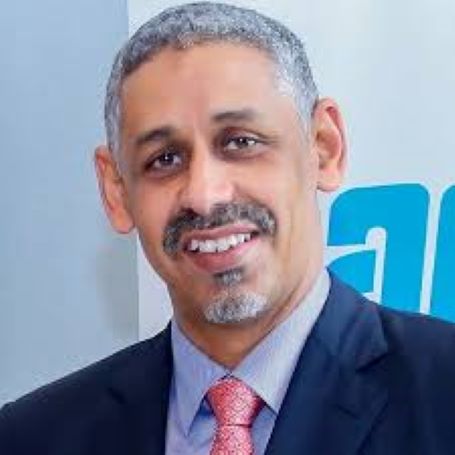Dr. Sidi Ould Tah has officially assumed office as the ninth President of the African Development Bank Group (AfDB), succeeding Dr. Akinwumi A. Adesina, who completed two terms.
At exactly 11:04 a.m. Abidjan time on a rainswept Monday, Dr. Ould Tah took the oath of office at the helm of Africa’s premier development finance institution. The high-level ceremony, held at the Sofitel Abidjan Hôtel Ivoire, was graced by Côte d’Ivoire’s President Alassane Ouattara and Mauritania’s President Mohamed Ould Ghazouani.
Also in attendance were former AfDB Presidents Dr. Adesina and Dr. Donald Kaberuka, the Bank Group’s Board of Governors, Executive Directors, staff, and international dignitaries. The ceremony was presided over by Ludovic Ngatse, Congo’s Minister of Economy and Chair of the AfDB Board of Governors.
Dr. Ould Tah, 60, from Mauritania, was elected on May 29, 2025, with over 76% of shareholder votes—the highest margin ever for a first-term president in the Bank’s history.
Leaders hail a historic transition
President Ouattara described the leadership change as a “milestone which comes at a historic moment in the life of our pan-African institution” and one that “paves the way for a new era of hope for the Bank.”
In his congratulatory remarks, President Ghazouani said, “Dr. Sidi Ould Tah has this heavy responsibility to ensure that the Bank enhances its key role in promoting the economic and social development of the continent, for it to remain a full lever in terms of fulfilling the aspirations of African people to peace, prosperity and development.”
Ould Tah outlines vision
Delivering his inaugural speech, Ould Tah pledged:
“We will be the Bank that bridges divides—between regions, between ambitions and execution, between public and private, between urgency and bureaucracy. Let us move forward together—with urgency, with unity, and with unwavering accountability.”
He unveiled his “Four Cardinal Points” for his first 100 days: listening intently; launching a fast-track reform agenda; deepening partnerships; and accelerating real solutions.
He emphasized that the Bank will be “attentive, responsive, and capable of setting priorities that matter,” while enhancing partnerships with governments, the private sector, and international actors. He also pledged to expand engagement with sovereign funds, pension funds, and other new partners. Importantly, he committed to revisiting the Bank’s investment models to include a dedicated pillar for peace.
Background and credentials
Dr. Ould Tah previously served as President of the Arab Bank for Economic Development in Africa (BADEA), where he oversaw a landmark transformation that nearly doubled assets and earned the institution AA+/AAA ratings. His career spans more than four decades in development banking, economic policy, and institutional reform.
Between 2008 and 2015, he was Mauritania’s Minister of Economy and Finance, and represented the country on the Boards of the AfDB, World Bank, and Islamic Development Bank.
He holds a PhD in Economics from the University of Nice Sophia Antipolis, France, and advanced degrees from Paris VII-Jussieu and the University of Nouakchott. He is fluent in Arabic, English, and French, with working proficiency in Portuguese and Spanish.
AfDB fundamentals
Ould Tah inherits an institution with strong foundations: $318 billion in capital, 10 consecutive years of AAA ratings, and the highest transparency score globally for a sovereign portfolio (98.8%). Over the past decade, the Bank approved $102 billion in development financing.
The swearing-in was attended by international partners including Finance in Common, the Alliance of African Financial Institutions, the International Development Finance Club, and the Arab Coordination Group. Three other candidates for the presidency—Ms. Bajabulile Swazi Tshabalala, Mr. Amadou Hott, and Dr. Samuel Munzele Maimbo—were also present.
Looking ahead, Dr. Ould Tah said the AfDB must act as a compass for Africa as it navigates the challenges of demographics, technology, and climate change.
“Africa must look North, South, East and West—not to imitate, but to draw wisdom and strength from every direction while defining its own course,” he declared. “The African Development Bank should not aim to be everything to everyone. It should focus on where it can move the needle most, always with the spirit of partnership.”


